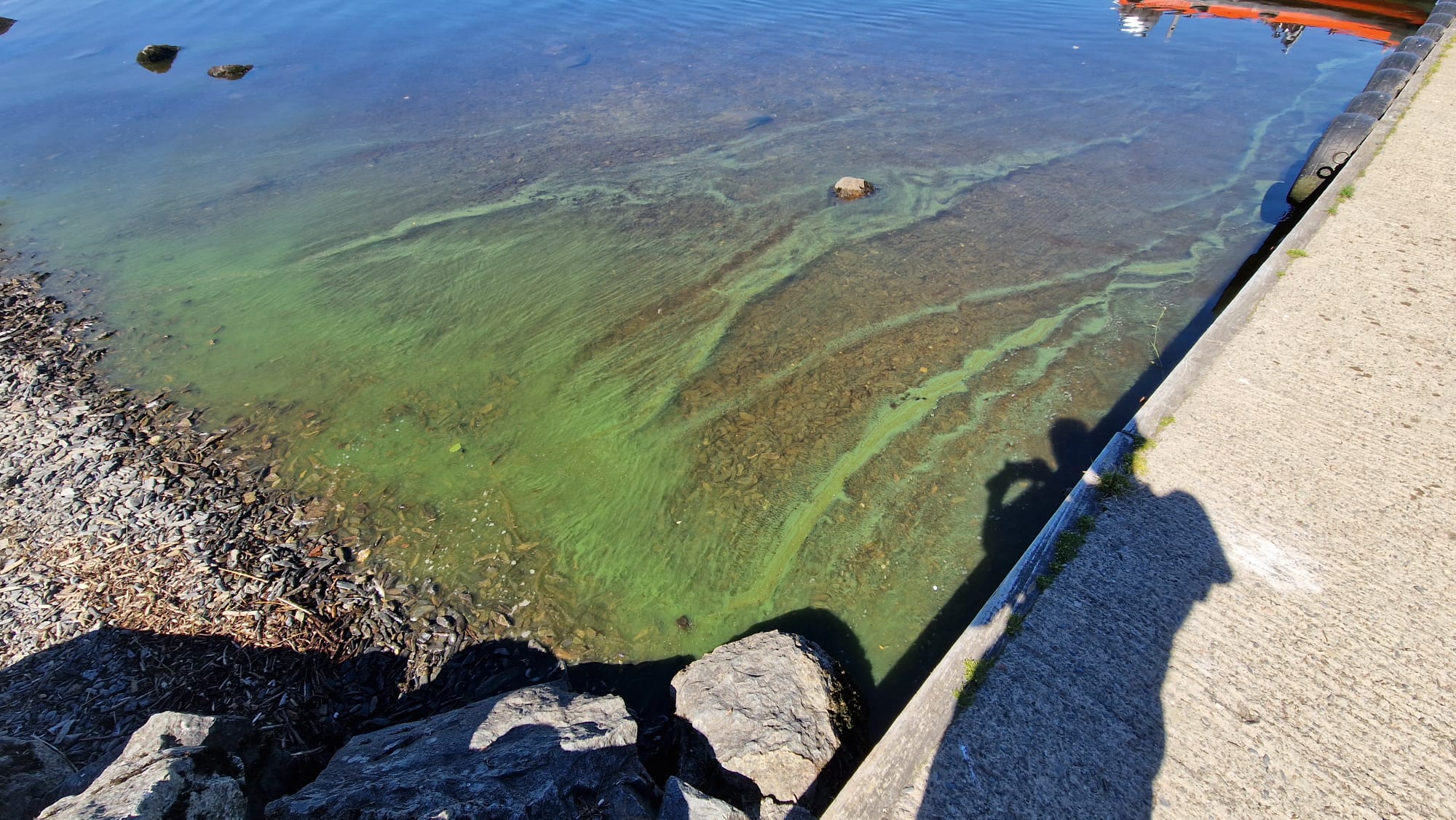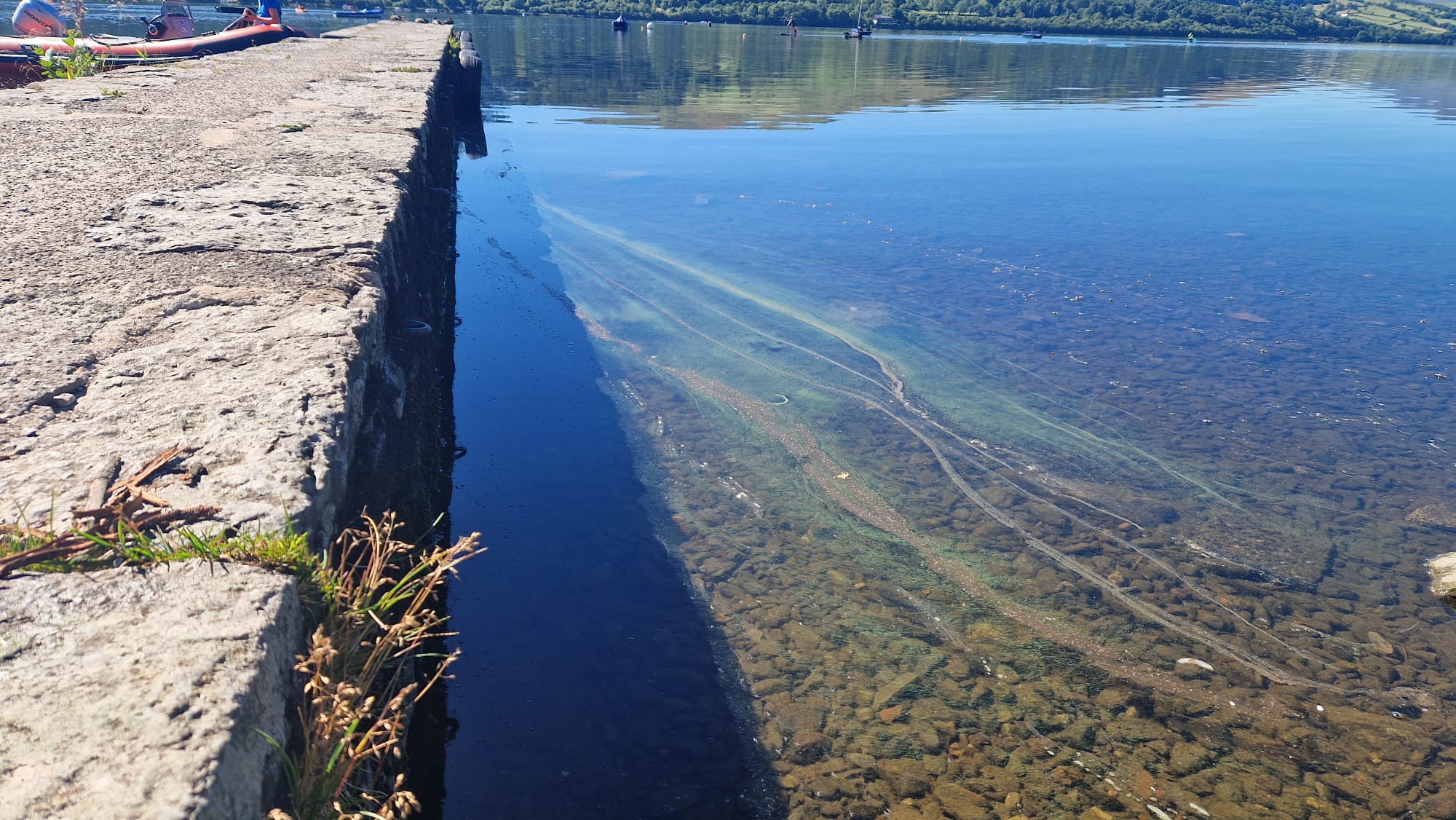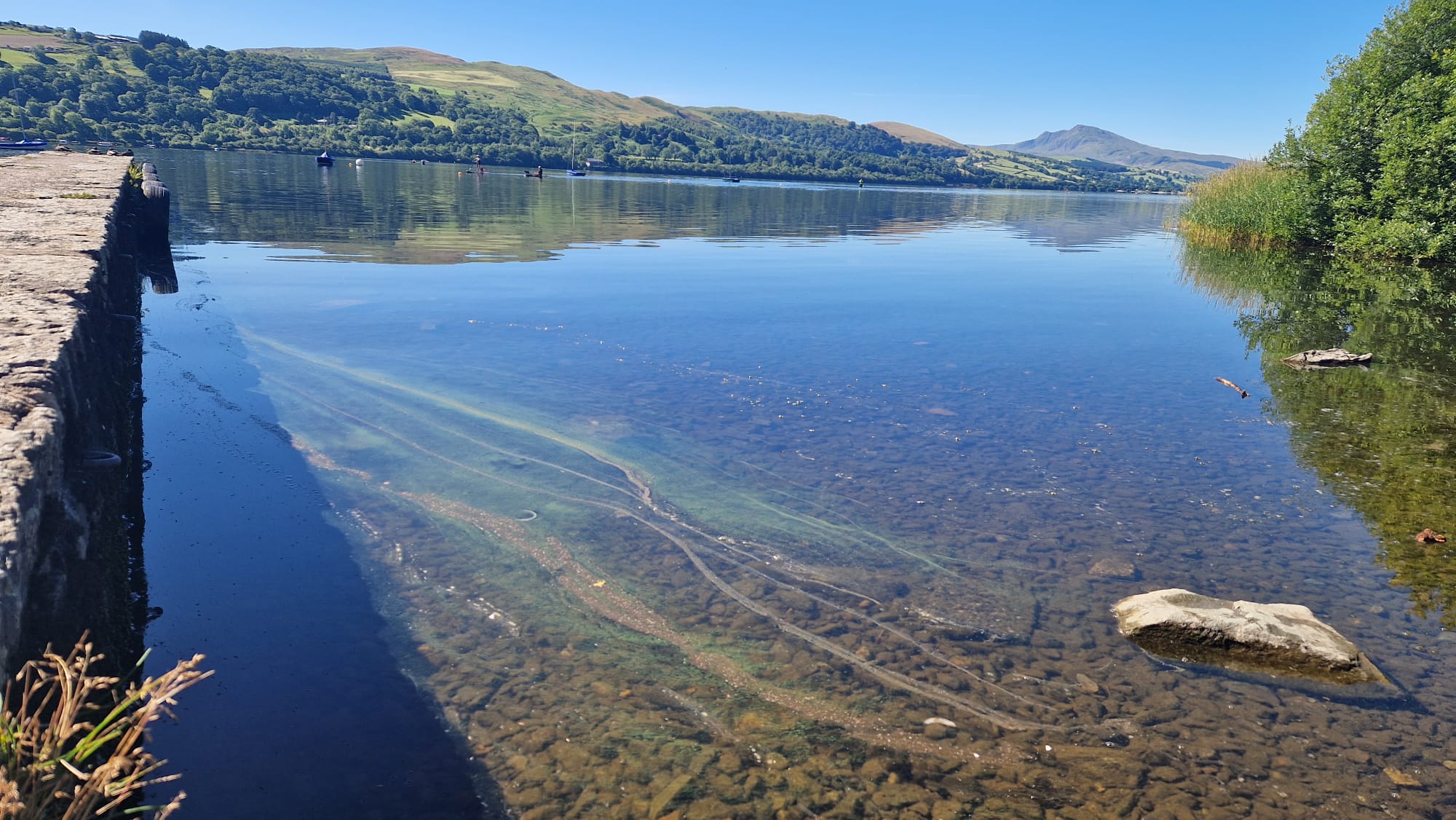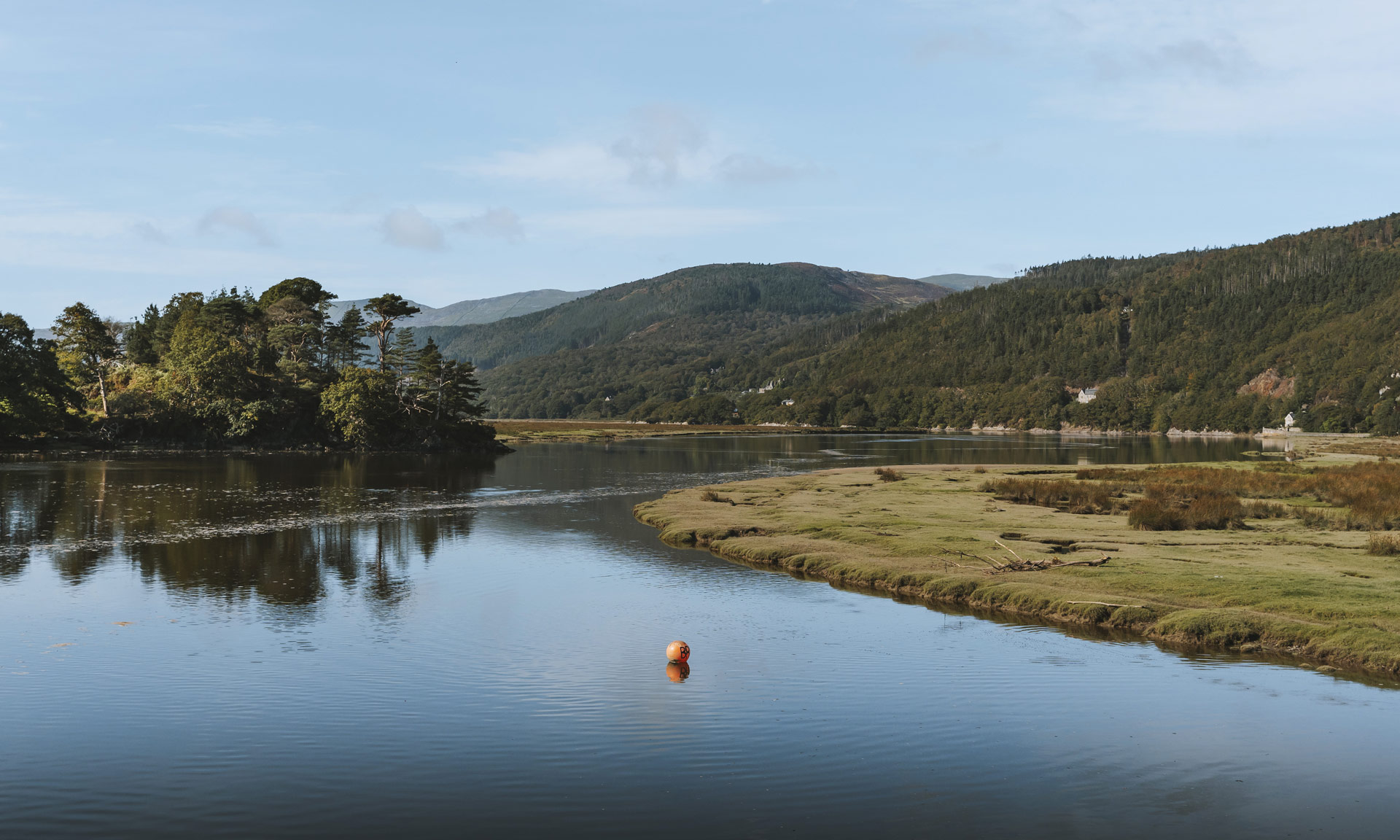What is blue-green algae?
Blue-green algal bloom is a natural phenomenon that has occurred in Llyn Tegid for many years. It mostly appears during periods of fine, hot weather and can be easily identified from the bright-green coloured scum floating near the shorelines.
Blue-green algal bloom is toxic to humans and animals, and skin contact with, or ingestion of the algae can cause mild to severe illness. Symptoms include:
- Skin rashes
- Eye irritation
- Vomiting
- Diarrhoea
- Fever
- Muscular or joint pain
Dogs and livestock are especially vulnerable to blue-green algae, and they can become severely or fatally ill very quickly.



How to keep yourself and your pets safe?
Our team of Lake Wardens monitor the lake’s water conditions very closely, especially in the summer season when blue-green algal bloom is most likely to occur.
When blue-green algal bloom has been identified or is suspected, prominent safety notices are erected around the lake, in addition to the year-round safety notices. Before embarking on any water activities, lake users are strongly advised to read the safety notice and heed the advice given.
Our advice is not to enter the water in the presence of blue-green algal bloom. Even though the bloom is usually more prominent on the shores, the toxins can be present throughout the body of water.
If you are unsure, or if the water is not crystal clear, err on the side of caution and keep out of the water.
More information about the health risks of blue-green algae is available on the NHS Wales website.
What should you do if you think that you have been exposed to blue-green algae?
Look out for any of the symptoms listed above. If you or anyone else from your party become unwell, seek medical advice, citing blue-green algae as the likely cause.
If there is any chance that your dog has been in contact with blue-green algae and begins to appear unwell, you should contact your vet immediately.
Any sightings of blue-green algal bloom in the lake should be notified immediately to the Lake Wardens at the foreshore office or on 01678 520 626.


